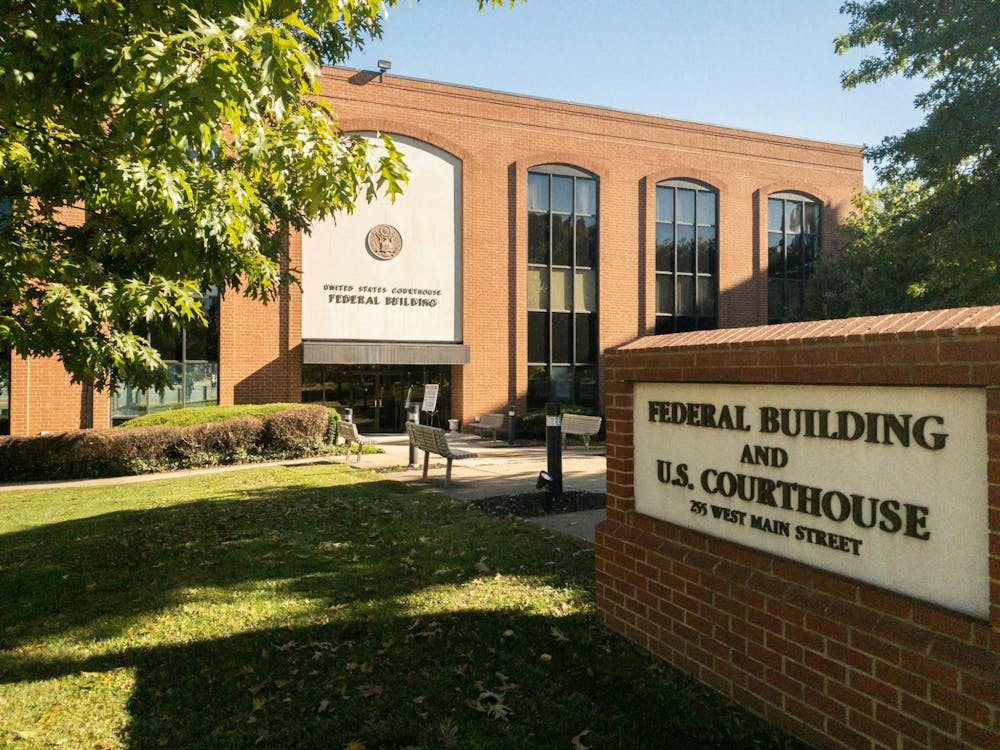IN ELECTIONS three weeks ago, the student body supported the extension of spousal benefits to the domestic partners of homosexual faculty and staff by a three-to-one ratio. One would think a victory so overwhelming within the University community itself would fast-track reform on the issue.
Unfortunately, true progress, which requires the work of both the University administration and the General Assembly, seems to have reached a standstill. Clearly, many elected state officials feel eager to make the University's judgments for it or discount the referendum as a symptom of campus liberalism. So perhaps the University's keepers could reach a decision by considering same-sex partner benefits a pragmatic issue. The fact remains that in these cash-strapped times, same-sex benefits would provide cost-efficient and concrete benefits to the University.
Surely, the University's failure to extend benefits discourages gay potential faculty and staff. It's no stretch to say this policy robs the University of qualified employees and hands them off to rivals.
The University lags behind most other top-tier institutions in providing same-sex benefits. All Ivy League schools extend benefits to same-sex partners, as do the University's rivals for public school supremacy, UC-Berkeley and Michigan. Even conservative bastions such as Washington and Lee and Southern Methodist University have realized they cannot operate at such a competitive disadvantage.
According to The Daily Illini and the news bureau of the University of Illinois, both the Universities of Illinois and Indiana find that each applicant for such same-sex partner benefits costs around $4,000 per year.
Furthermore, a City University of New York study found that many mid-sized or large universities extending benefits (such as the University of Chicago, the University of Iowa, Stanford, Princeton and Harvard) had initially overestimated registration for same-sex partner benefits. In general, at universities, fewer than 1 percent of employees sign up for them.
According to its Web site, the University employs 11,352 faculty and staff. With 1 percent of them -- an above-average amount for universities -- hypothetically registering at a cost of $4,000 per year, extension of benefits would cost about $454,000 annually.
This sum appears miniscule against the University's annual operating budget. The University's budget office pointed this me to the President's Report (available through the University Web site), which puts the University's total fiscal year 2003 operating expenses at $1.49 billion (including the Hospital and the College at Wise). If the University registered a higher ratio of its employees than the city of San Francisco, same-sex partner benefits would still represent a fraction of 1 percent of the University's salary and benefits budget of $822 million.
To keep company with this nation's best institutions of higher education, the University at least needs to compete with their compensation policies. Today, the landscape stands with most top schools offering same-sex benefits and the University playing catch-up. Clearly, the General Assembly and the University's administration should consider pragmatic and competitive upsides before continuing to discriminate.
Because the decision to extend same-sex partner benefits does not belong to the University alone, our community must leave its ivory tower, take action and fight for it. The students have spoken up for the fairest and most sound policy. Now it's the University administration's turn. And of course, that requires dedication from the locus of power. University President John T. Casteen, III has dedicated much of his career to inviting diversity and strengthening the University with it. As a dean here, he worked to build a diverse, coeducational institution. As the Commonwealth's Secretary of Education, he took these battles to the state level. As president, he has made fairness and tolerance cornerstones of the University.
Those measures brought this institution to greatness. The University emerged into true excellence through some simple principles that reflect both philosophical and pragmatic tones: drawing talent from a broader pool, seeking out diversity and opening doors to those kept out before. These still remain the best avenues to better our school today. For the sake of the University, Casteen should continue his inclusive legacy and lead the administration in advocating the extension of same-sex benefits.
Michael Slaven's column appears Fridays in The Cavalier Daily. He can be reached at mslaven@cavalierdaily.com.






